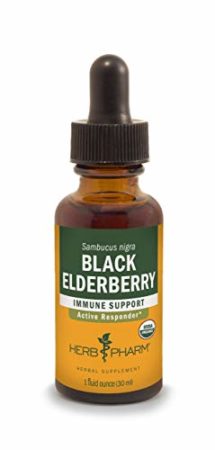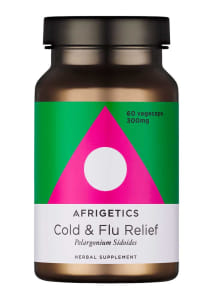“Everyone wants a quick flu fix,” says Dr Fiona Culley, an immunologist specialising in the field of respiratory inflammation and infection. “I know everything that there is to know about cold viruses and I still get them. However, it’s a sign of a robust immune system in action – every virus that you have educates your body for the next time.”
ALSO SEE: Four Foods To Help You Eat Your Way To A Healthy You
A healthy gut = a healthy immunity
The latest science shows the health of our immune system is directly linked to the diversity of our gut microbes – collectively known as the microbiome.
Tim Spector, professor of genetic epidemiology and author of The Diet Myth (Orion), says, “If you give people a nasty virus in the same amount, everyone will respond differently and a third of people won’t get ill at all. Yet we all share 99,9% of genes and variants. What science is saying now, is genes play only a small part in immune response and the rest is down to microbes, which are unique to each person. This is exciting because, unlike genes, we can alter our microbiome. So we can potentially boost our immunity.”
In the future, he says, we’ll have personalised diets to best feed our microbiome. “We’ll be able to manipulate the microbes in vulnerable people, like the young and elderly, so their immune system can better fight infection.”
Until then? There’s lots you can do to increase your microbiome diversity:
- Adopt a healthy, balanced diet that’s based on unprocessed whole foods.
- Include a wide variety of fruit and vegetables in all colours.
- Have plenty of nuts and seeds.
- Avoid additives and sugars.
- Don’t be boring, try new foods daily.
- Vary your meals: don’t have the same breakfast or lunch day in, day out.
- Get into fermented foods, including them daily: kombucha, sauerkraut, kimchi, natural yoghurt, milk kefir, and fermented cheese and soy products.
ALSO SEE: 5 Reasons Why Fermented Foods Are Good For You
For gut-friendly eating, try The G Plan Diet (Aster) by Amanda Hamilton and Hannah Ebelthite.
The cold war
What really works?
When it comes to a cure, we could be closer than you’d think. A nasal spray vaccine called SynGEM is being trialled by Dr Culley and her colleagues at Imperial College London. It’s thought to work on three strains of cold virus that cause 80% of colds. But for now, says GP Dr Michael Dixon, the following herbal helpers are worth trying:
Black Elderberry “This may be due to the antioxidant flavonoids found in elderberries,” says Dr Dixon. Try Organic Black Elderberry Extract for Immune System Support, from R860, wantitall.co.za

Echinacea A US review of more than a dozen studies, published in The Lancet Infectious Diseases journal, found that echinacea reduces your chance of catching a cold by 58%, and shortens its duration by 1,4 days. A. Vogel Echinaforce uses only fresh extract. Try the Echinacea Drops, R112 for 50ml, Clicks.

Pelargonium “This is my favourite cold and flu prevention and treatment,” says Dr Dixon. “There’s good evidence to support it and I have practical experience of its efficacy.” Capable of relieving symptoms of acute bronchitis, rhinosinusitis and the common cold, you can find the extract in Afrigetics Cold & Flu Relief – Pelargonium Sidoides, R150 for 60 vegacaps, faithful-to-nature.co.za

Stress less, sleep more, and socialise
Keep the three Ss in mind when it comes to winter health. Stressful days and sleepless nights are two of the biggest immunity saboteurs. And being social can be protective…
“Our hormones influence the state of our immune defences,” says Daniel Davis, professor of immunology and author of The Compatibility Gene (Penguin Books). “By far the best understood of these is the effect that stress hormones have on the immune system. Chronic, long-term stress produces the hormone cortisol, which lowers immune function.”
ALSO SEE: How To Get A Great Night’s Sleep
“Sleep has a massive impact on the immune system,” says Dr Natalie Riddell, ageing researcher and an expert in the field of immunology. “Disturbing sleep can throw out your immune system. Studies have shown a reduced immune response in people who regularly sleep less than six hours a night. Even short-term sleep deprivation has a negative effect.”
“Social connectedness is important for immune function,” says psychologist and health researcher Dr Meg Arroll. “People who have relationships with friends, colleagues and extended family are less likely to come down with a cold. Spend time with other human beings.”
ALSO SEE: 6 Ways To De-Stress Right Now
Words, Hannah Ebelthite. Additional words, Belinda dos Santos

